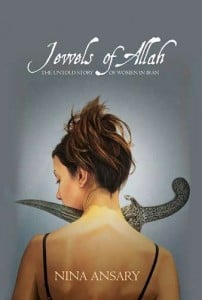We’re sharing some excerpts today from a few different stories that relate to things we’ve covered recently on MMW. Enjoy!
The editors of Love, InshAllah, which Merium reviewed in February, wrote an article for International Women’s Day about the importance of listening to Muslim women’s diverse stories:
There is no denying that there is subjugation and oppression of women committed by Muslims, in the name of Islam, the world over — just as we know there is injustice occurring everyday against women of all faiths, in all countries, in the name of religion politics, and ideology.
But the experiences of some Muslim women do not negate the experiences of others. The voices of Muslim women are diverse, and our individual experiences authentic. We must be placed in our own context without being smothered under an entire globe’s worth of geopolitical baggage. Just as the life of a Catholic woman in a village in Guatemala is very different from that of a Catholic woman in the village of Manhattan’s Upper East Side, so too are the lives, realities and experiences of over 500 million Muslim women across the globe.
In the last few years, Muslim women have begun pushing back against the monolithic “Muslim Woman” to celebrate the joys of our context and the challenges therein. We’ve seen a Muslim woman — Tawakkul Karman — win the Nobel Peace Prize for her pro-democracy work in Yemen, and another Muslim woman — Sharmeen Obaid Chinoy — win an Oscar for amplifying the courageous voices of acid attack survivors in Pakistan.
Speaking of Sharmeen Obaid Chinoy, whose film Saving Face Diana wrote about a couple weeks ago, there’s more on her and her film over at AltMuslim:
On one hand, while Pakistan produces educated, enlightened and talented females like Obaid-Chinoy, it also bears witness to victims of acid throwing, like 25-year-old Rukhsana, who is featured in the documentary. Two days before the Academy Awards, I interviewed Obaid-Chinoy, the film’s director Daniel Junge and Dr. Mohammad Jawad, whose work is featured in the film, at a pre-Oscar celebration hosted by Pakistan’s Los Angeles Consular General, Riffat Masood. Our conversation revealed the complexity of pessimism and hope in Pakistan.
“I have always felt that if you are educated and empowered you can become the voice for those that are marginalized and disenfranchised,” said Obaid-Chinoy. The variations that can produce such juxtaposed lives — in a developing country like Pakistan—are the stratum of education, social milieu and background.
Obaid-Chinoy said that despite the problems women in Pakistan face, she felt optimistic. “We have a strong feminine presence: female lawyers and legislators fighting on behalf of these women, who hear the testimonies, write the bills and get them passed in parliament. This shows no matter where we come from in Pakistan, there are people working to make it a more tolerant society,” she said.
And yet, over at KABOBfest, MMW’s Sana Saeed isn’t as excited about Pakistan’s first Oscar win:
The topic of the film is both powerful and painful: it is the story of two women, victims of acid attacks which disfigured their faces, as they try to reconfigure their lives and receive help from a surgeon.
And some of you are probably about to hate me now.
Despite the importance of the bringing justice to the women (and men) who face these senseless attacks (beyond Pakistan), I couldn’t help but cringe at the fact that not only was such a documentary nominated but that it won and is “Pakistan’s first Oscar”. This is how Pakistan is recognized at what is considered the ‘most important’ film award ceremony? An Oprah special turned into a documentary? And is this what South Asian women are, once again, reduced to? The trope of the victimized South Asian female, at the Oscars, is not new; it has been dangerously bludgeoned for years. A quick look at past nominees from South Asia (specifically India) for various categories reveal themes of female victimization (Water), feel-good extreme poverty (Slumdog Millionaire, Salaam Bombay!) and nostalgia for the colonial past (Lagaan, Water). But even more than this — is this how Pakistani women, in particular, are seen? Victims of acid attacks by a ‘backwards’ society and can be saved with the help of a camera crew and a British Pakistani surgeon?
And last, not directly related to any of our recent posts, but succinctly taking down a silly article (and headline) so that we don’t have to, is this tidbit from wood turtle’s latest roundup:
Is your
political regimehijab limiting? Does yourmanchador oppress you? Why not come to a Hawaii-esque beach where you can have a “small taste of freedom” and experience “respite from a regime that regulates hemlines and headscarfs” while getting a tan and swimming with the “rare, sweet sensation of sunlight” on your skin.With the *shocking* title of “From hijab to skimpy bikini” a New Zealand travel article explores the tropical Iranian island of Kish — where pale, submissive Persians let loose, laugh and play, enjoy some ice cream, and get their thong-tha-thong-tha-thongs on at the women-only beach.
Yeah.
What did I miss? Are there any other good responses or follow-ups out there to stories that MMW has covered recently?












